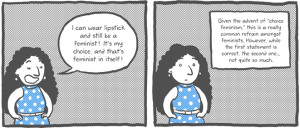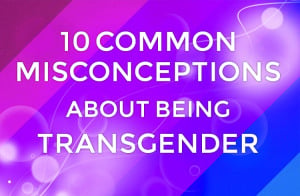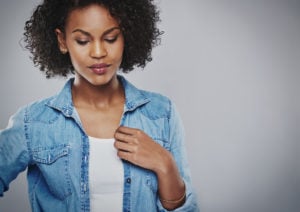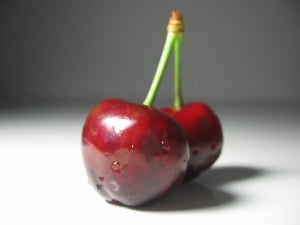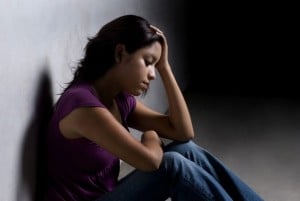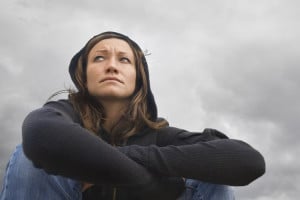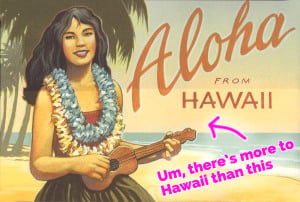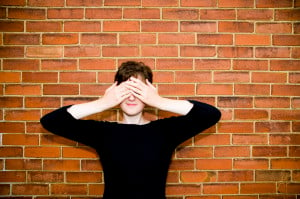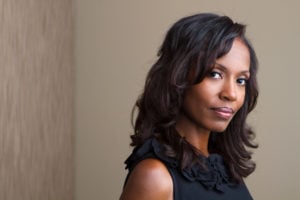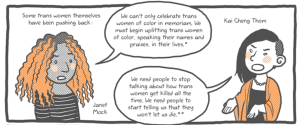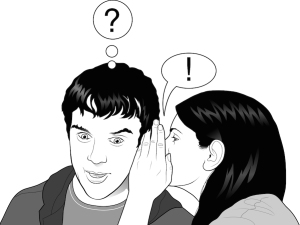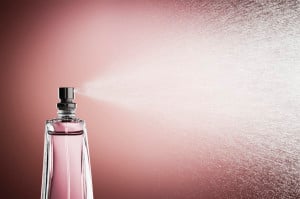
Source: Tech Kid
Is there a distorted echo in here?
It seems like for every action empowering a marginalized group, there is an opposite reaction bringing the focus back to the dominant culture.
#BlackLivesMatter. #AllLivesMatter.
It’s International Women’s Day! When’s International Men’s Day?
Happy Black History Month. Why isn’t there a White History Month?
See what I mean?
We’ve got to get rid of this echo.
Refocusing on the dominant narrative instead of making room for the celebration of oppressed people is unnecessary. It hurts our efforts to create a just world.
I know the reaction to specific groups’ positivity isn’t all based on outright hate – you don’t have to be a member of the KKK to be confused about why there’s no White Entertainment Television. And even if you’re not on board with having a White History Month, the thought may have crossed your mind one February.
But these thoughts are based on misconceptions about the nature of power and equality.
So let’s clear up some of the misunderstandings behind the common objections to marginalized group empowerment.
1. ‘That’s Reverse Oppression!’
Some people interpret messages of positivity for one group as negativity for another.
They might say that having Black Entertainment Television without White Entertainment Television is “reverse racism.”
The idea of reverse racism is fundamentally flawed to begin with.
To say that BET is inherently racist against white people, you’d have to ignore the existence of the oppressive systems at work in the world, as well as the historical context that led to the establishment of a TV network meant to celebrate Blackness.
In a recent celebration of Blackness, March 6 was designated #BlackOutDay. It was sparked by Tumblr user T’von, who noticed a lack of everyday Black people recognizing their own beauty on social media.
#BlackOutDay turned out as an extraordinary outpouring of self-love from Black people on Tumblr, Twitter, Facebook, and more. People who’d never felt good enough to post selfies before embraced their own image, and found affirmations of their radiance.
#BlackOutDay was beautiful.
Then came the echo.
Some white people responded with their own #WhiteOutDay selfies. Other people asked why there was a need to focus on race at all, and called instead for #HumanDay.
They wondered, Isn’t celebrating only the beauty of Blackness oppressive to everyone else?
I’ll tell you why it’s not.
Nearly every time I turn on my television, or look at magazine stands, you might as well call it #WhiteOutDay. The media perpetuates a Eurocentric ideal of beauty as thin and white like it’s nobody’s business – except that it is really big business.
I mean, corporations are making billions of dollars from marketing that tells me I’m not pretty enough.
As Melissa A. Fabello wrote in her analysis of the flaws in reverse oppression claims, “the dominant group has the power to define reality.”
We’re living with a definition of beauty that includes anti-black racism and values whiteness.
So #BlackOutDay isn’t about saying that Black people are beautiful and putting down everyone else. It’s actually an incredibly successful way to put grassroots power into the hands of one group of people who are constantly put down by mainstream messages on beauty.
When you’re used to seeing images of people like you as thugs, or maids, or secondary sassy friends (if there are images of people like you at all), reclaiming the spotlight to reaffirm your worth is something to rejoice.
#BlackOutDay is necessary.
2. ‘But Empowerment Should Be for Everyone’
It’s true that everyone deserves self-love and affirmation! I wholeheartedly believe that.
And by understanding the power of visibility, we can see that some groups are more routinely disempowered than others.
For example, all women and girls are subject to messages saying that we’re not as capable as men.
So in 2013, when the hashtag #BlackGirlsRock accompanied BET’s annual Black Girls Rock awards show, some responded by asking why it’s okay to say “Black girls rock” but not “white girls rock.”
Some of the reasoning for #WhiteGirlsRock was that all girls deserve to hear that they rock, and that’s true.
But the purpose of that particular hashtag wasn’t to say that all girls rock. There are worthy organizations working to affirm that. The unique message of Black Girls Rock was in response to the particular ways that sexism and racism work together to devalue black girls.
The underlying message of Black Girls Rock isn’t “…and white girls suck.” The message is “Black girls deserve visibility,” and it’s important to have a moment to spread that message when it so often goes unsaid.
Ground-breaking Black ballet dancer Misty Copeland performed a breathtaking routine at Black Girls Rock that year. I wonder what would have happened if I saw a Black ballerina on television when I was a kid, before I got tired of feeling othered and quit ballet.
3. ‘This Isn’t Equality – It’s Favoring One Group Over Others’
It’s hard for some people to reconcile striving for equality with creating what they might call “special interest groups” for marginalized people.
All things being equal, we should treat everyone the same, shouldn’t we?
Unfortunately, all things aren’t equal.
Because of the oppressive conditions we live in, we have a long way to go before “equality” is as simple as “treat everyone the same.” It’s a lot more complicated than that.
Anti-oppression work means striving for justice, rather than sameness, which erases our differences and upholds privilege.
That’s why, as we’ve already reviewed, the “reverse oppression” and “empowerment is for everyone” objections don’t hold up in the context of people’s lived experiences.
So creating something like #BlackOutDay isn’t unfairly favoring Black people. What’s unfair is the fact that we have so few positive depictions of Blackness that we suffer when we don’t create our own.
It’s not only the fact that whiteness has so much more visibility than any other racial identity. Media representation is just one of the ways that systems of oppression keep power in the hands of dominant groups.
That’s why the dominant narrative echo is dangerous.
Maybe you wouldn’t support laws restricting the rights of women. But if you don’t believe in having groups that look out for women in male-dominated political conversations, then you’re supporting the conditions that allow those laws to pass.
Maybe you’re disturbed by reports of violence against LGBTQIA+ people of color. If you feel personally attacked by exclusion from spaces meant only for LGBTQIA+ people of color, then you’re missing the bigger picture of why we need safe spaces that focus on meeting our needs.
Maybe you don’t support hate groups, but by participating in the dominant echo, you risk aligning with the same ideologies that would work to have dominant groups retain power and continue to oppress disenfranchised people.
That was clear recently when Tennessee Representative Sheila Butt said that we should have a “Council of Christian Relations and a NAAWP,” allegedly in response to a Muslim civil liberties group sending a letter asking 2016 GOP candidates to reject Islamophobia.
She later said that she was unaware of the National Association for the Advancement of White People as a KKK organization, and clarified that she meant for the W to stand for Western people, not white people.
Either way, her statements miss the point of why civil liberties groups exist for marginalized people. And as her blunder shows, creating similar groups for dominant cultures is a tactic for perpetuating harmful oppression.
Why We Can’t Stand for the Dominant Narrative Echo
It’s unfortunate that marginalized people, who already struggle with the daily impacts of oppression, can’t even have a moment to reaffirm their value without dealing with backlash.
The fact that preparation for #BlackOutDay included a plan for dealing with negativity is telling.
But the approach to making sure the criticism didn’t stop the fun gives me hope for our unstoppable strength to step into our power. For example, Black Tumblr’s master list of racist blogs let people know who to block.
And, as Kwanzaa Imani wrote on For Harriet, “If anything, the negative responses to #BlackOutDay made the community further resolute in having our own day of celebration, if only to disturb the haters.”
Best of all, Black social media users dismissed the negativity by spreading the love for gorgeous Black images of themselves and others.
Let’s make room for breaking up the status quo, giving power and visibility back to all of us who are far more beautiful than the toxic messages make us seem.
[do_widget id=”text-101″]
Maisha Z. Johnson is the Digital Content Associate and Staff Writer of Everyday Feminism. You can find her writing at the intersections and shamelessly indulging in her obsession with pop culture around the web. Maisha’s past work includes Community United Against Violence (CUAV), the nation’s oldest LGBTQ anti-violence organization, and Fired Up!, a program of California Coalition for Women Prisoners. Through her own project, Inkblot Arts, Maisha taps into the creative arts and digital media to amplify the voices of those often silenced. Like her on Facebook or follow her on Twitter @mzjwords.
Search our 3000+ articles!
Read our articles about:
Our online racial justice training
Used by hundreds of universities, non-profits, and businesses.
Click to learn more





